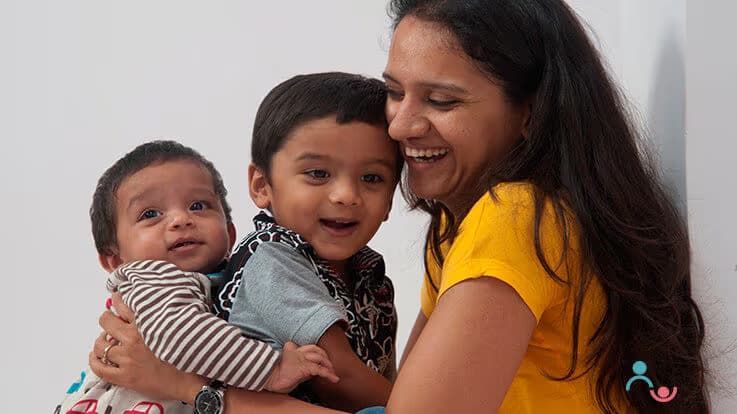We're loading the full news article for you. This includes the article content, images, author information, and related articles.
Across Kenya, firstborn children often carry immense family expectations that can lead to severe anxiety and burnout. Experts now urge a cultural shift to protect their mental well-being amid a growing youth mental health crisis.

In households across Kenya, they are often called 'the responsible one,' the trailblazer expected to set a flawless example for their younger siblings. But beneath this veneer of privilege and expectation lies a silent, heavy burden that many Kenyan firstborns carry: the pressure of perfectionism, which experts say is contributing to a rise in anxiety and depression among the youth.
This phenomenon, sometimes called 'firstborn syndrome,' is rooted in a combination of psychological dynamics and deeply ingrained cultural norms. According to the birth order theory first developed by Austrian psychotherapist Alfred Adler in the early 20th century, firstborns tend to be reliable, conscientious, and high-achieving leaders. Having received their parents' undivided attention initially, they often internalize the high expectations placed upon them, striving to maintain their role as the family's role model.
In Kenya, and much of Africa, these psychological tendencies are amplified by cultural and economic realities. The firstborn, particularly the first son, is often viewed as the future head of the family, responsible for its legacy and prosperity. This places them under immense pressure to succeed academically and professionally.
This responsibility often translates into a significant financial load known as 'black tax'—the expectation that an individual who has become successful will support their extended family. Many firstborns are expected to fund their siblings' education, cover parents' medical bills, and contribute to various family projects, often at the expense of their own financial goals and well-being. This can hinder personal progress and, in some cases, perpetuate a cycle of dependency.
For firstborn daughters, these pressures are often compounded by gendered expectations to be caregivers, mediators in family disputes, and surrogate parents to their younger siblings—an emotional and physical labour that begins in childhood.
While parental expectations are often well-intentioned, excessive pressure can have severe consequences for mental health. Research increasingly shows a strong link between perfectionism and conditions like anxiety, depression, and burnout. According to a study by the American Psychological Association, rates of perfectionism among young people have risen significantly over the last three decades, correlating with an increase in mental health challenges.
Nairobi-based psychologist Isaac Maweu explains that this silent burden can cause deep emotional scars, leading firstborns to believe their own needs are secondary. This can manifest as high-functioning anxiety, where an individual appears successful and composed on the outside while internally battling constant worry, a fear of failure, and dissatisfaction with their performance. Symptoms can include restlessness, sleep disturbances, muscle tension, and irritability.
The pressure to be perfect means that asking for help can feel like an admission of failure, forcing many to suffer in silence. This aligns with broader trends highlighted by a 2017 WHO report, which ranked Kenya fifth among African countries with high cases of depression, and local studies indicating that one in four Kenyans may experience a mental health condition in their lifetime.
Addressing the burden on firstborns requires a multi-faceted approach involving families and individuals. Financial consultants like Rhina Namsia, founder of The Acemt Consulting in Nairobi, advise those burdened by 'black tax' to embrace financial planning and set clear, healthy boundaries with family members. This involves open conversations about what can be realistically contributed without sacrificing personal financial security.
For parents, experts recommend shifting the focus from flawless achievement to effort and resilience. It is crucial to create an environment where children feel their worth is not conditional on their performance. Encouraging open dialogue about pressure and mental health can help de-stigmatize the issue within the family unit.
Firstborns themselves can benefit from practicing self-compassion and learning to delegate. Recognizing that it is acceptable to say 'no' and prioritize one's own well-being is a critical step toward preventing burnout. For those struggling with overwhelming anxiety or perfectionism, seeking professional help through therapy can provide crucial coping strategies. As societal pressures on young Kenyans continue to mount, fostering a culture that values mental health as much as achievement is essential for the well-being of all, starting with the trailblazers of the family.
Keep the conversation in one place—threads here stay linked to the story and in the forums.
Sign in to start a discussion
Start a conversation about this story and keep it linked here.
Other hot threads
E-sports and Gaming Community in Kenya
Active 9 months ago
The Role of Technology in Modern Agriculture (AgriTech)
Active 9 months ago
Popular Recreational Activities Across Counties
Active 9 months ago
Investing in Youth Sports Development Programs
Active 9 months ago